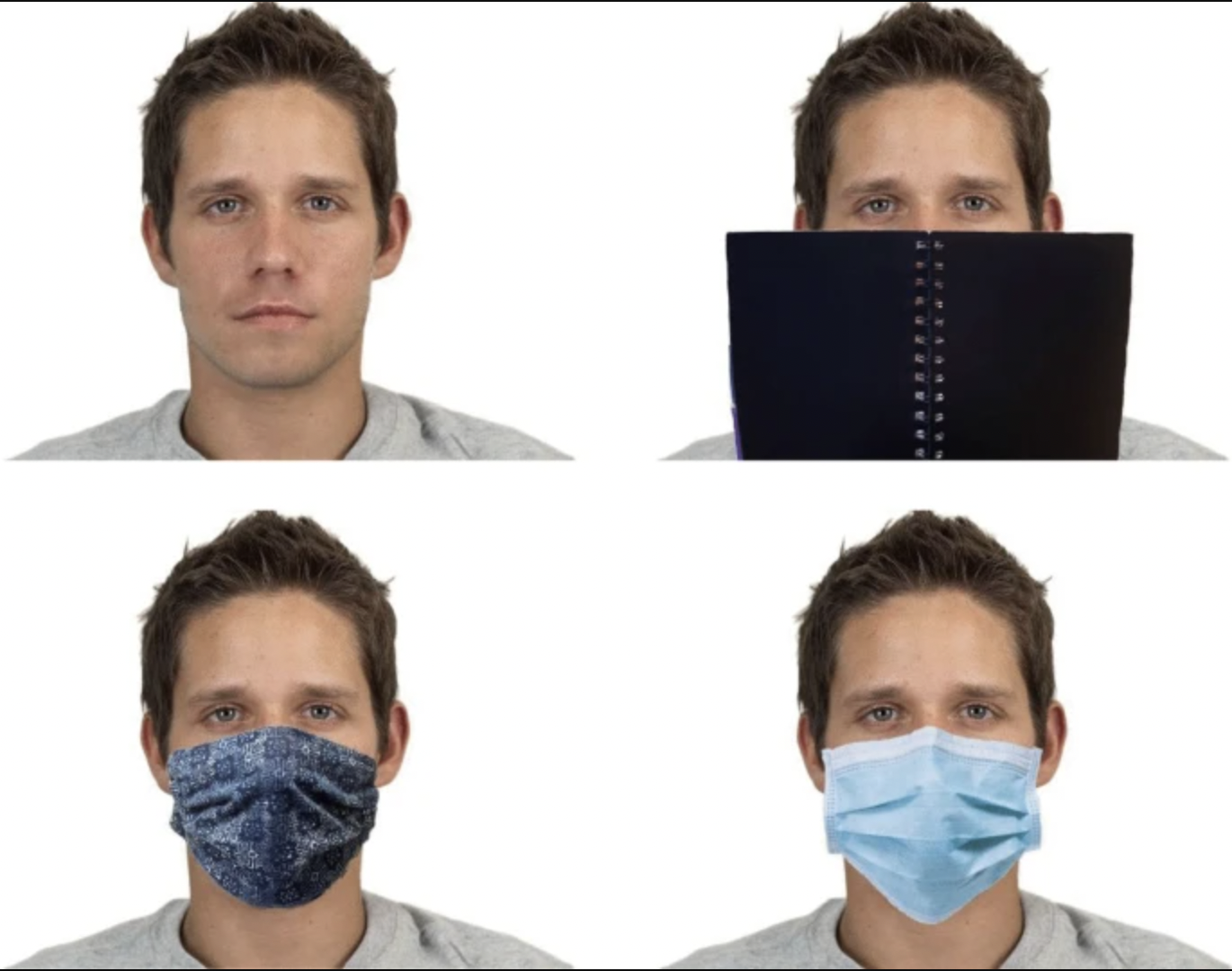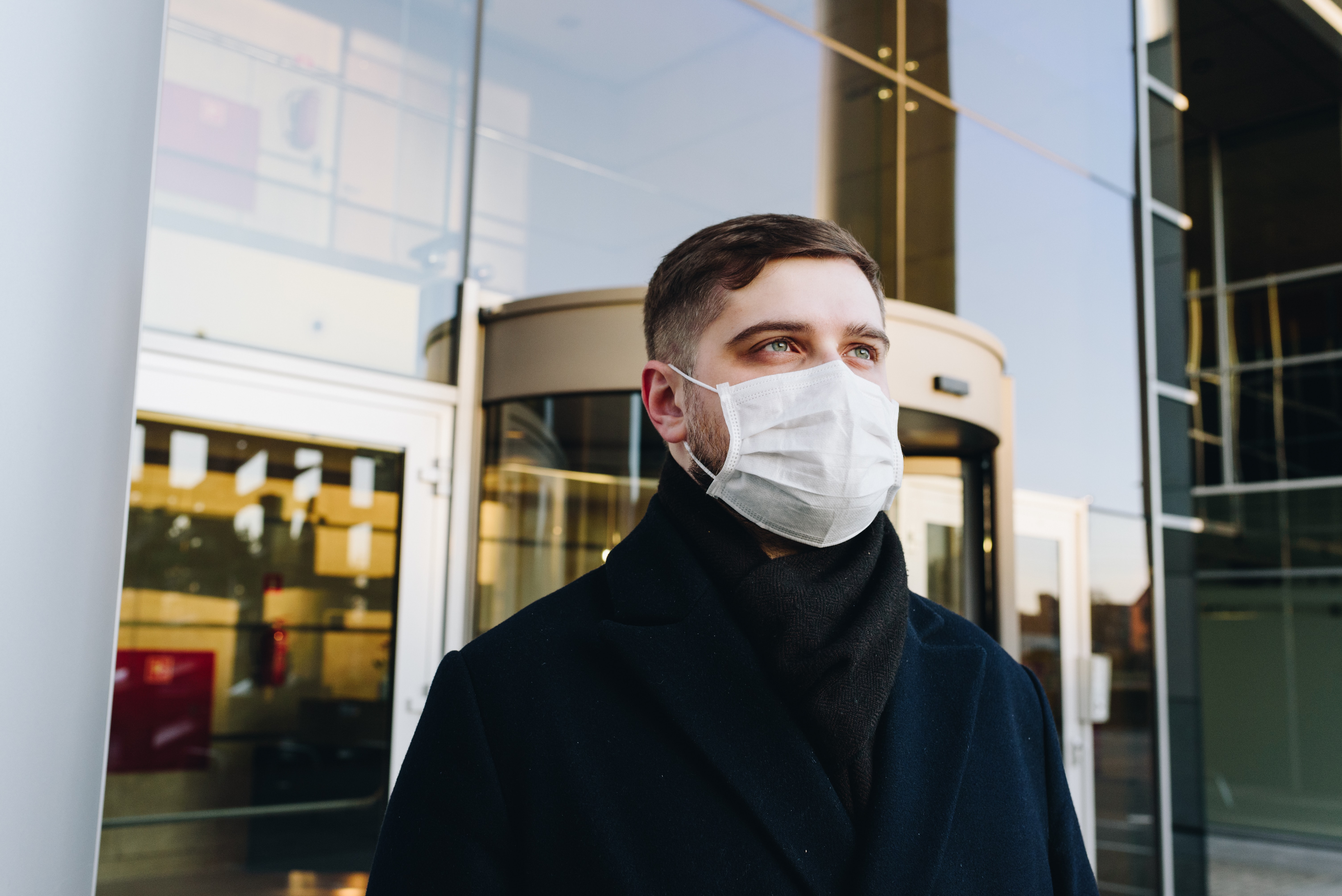New Study Finds Surgical Face Masks Make Men Look Hotter
Dating during the pandemic just got a little more exciting.
Before the COVID-19 pandemic took its course around the world, wearing face masks was associated with illness.
Except, they still do. So what changed?
In February 2021, seven months after masks became mandatory in the UK, researchers at Cardiff University were curious to know whether the pandemic had altered perceptions of attractiveness.
The study found that men were seen as better looking with the lower halves of their faces covered. What was surprising, however, is that the attractiveness factor was increased by the type of face covering: disposable surgical face masks.
This was far from the case pre-pandemic times, according to Dr Michael Lewis who is a reader from the university's School of Psychology and an expert in faces.
43 women were asked to rate the attractiveness of men in photographs on a scale of one to 10
The faces of men were shown in four different ways: without a mask, wearing a plain cloth mask, a blue medical face mask, and with a book in front of their face.
Those wearing a cloth mask were found to be significantly more attractive than the ones with no masks or whose faces were partly obscured by the book.
But the blue surgical mask — which was just a normal, disposable kind — made the wearer look even better, which is unfortunate for the environment.
The trend held for men who were rated as very attractive along with men who were rated as unattractive.
Example of the four types of images used in the study.
Image via Cognitive Research: Principles and ImplicationsLewis said it was also possible that masks made people more attractive because they directed attention to the eyes
He said other studies have found that covering the left or right half of a face also made people look more attractive, partly because the brain fills in the missing gaps and exaggerates the overall impact, according to The Guardian.
"This may be because we're used to healthcare workers wearing blue masks and now we associate these with people in caring or medical professions. At a time when we feel vulnerable, we may find the wearing of medical masks reassuring and so feel more positive towards the wearer," Lewis added.
The study's findings were published in the peer-reviewed journal Cognitive Research: Principles and Implications on 10 January.


